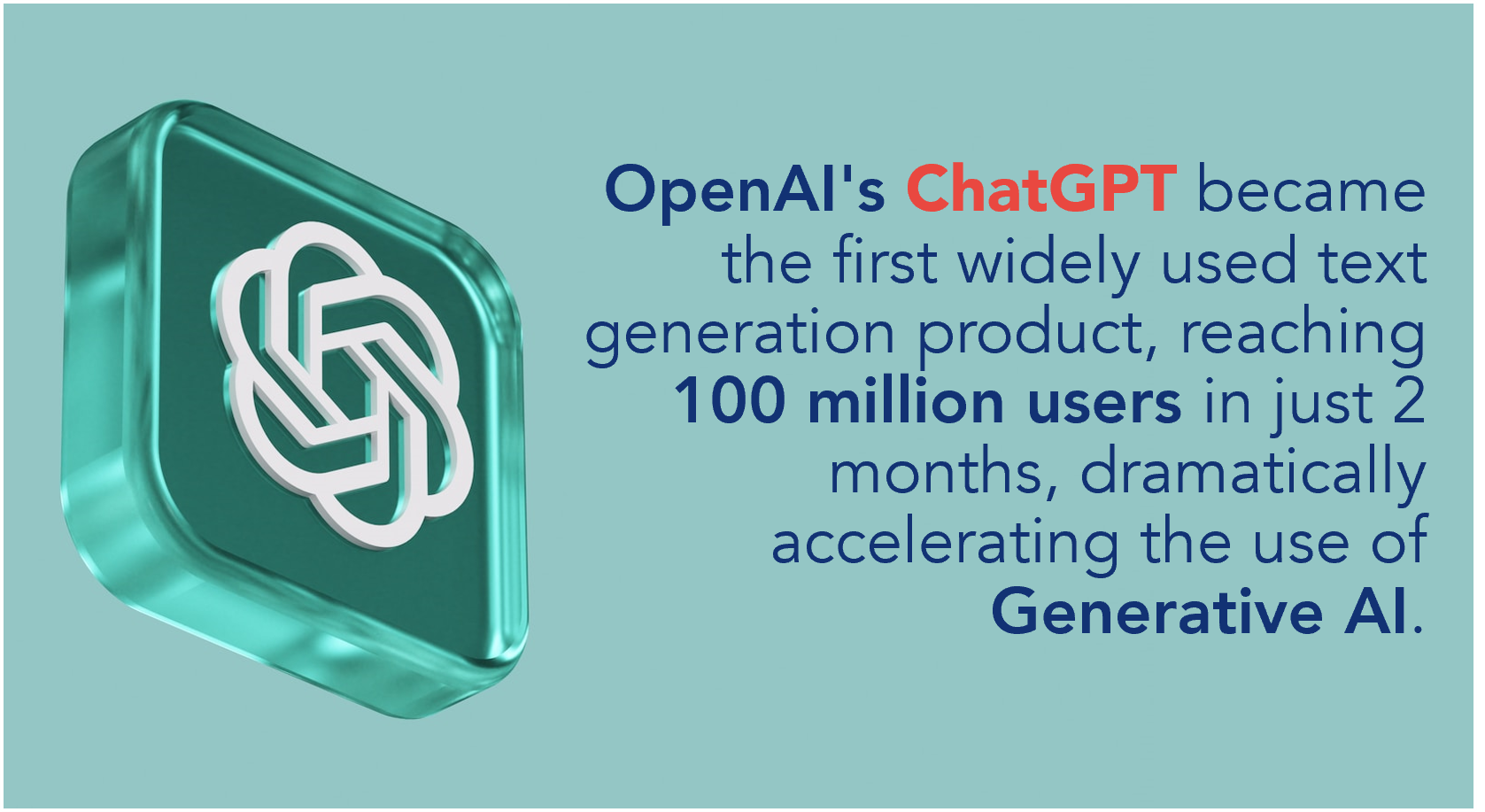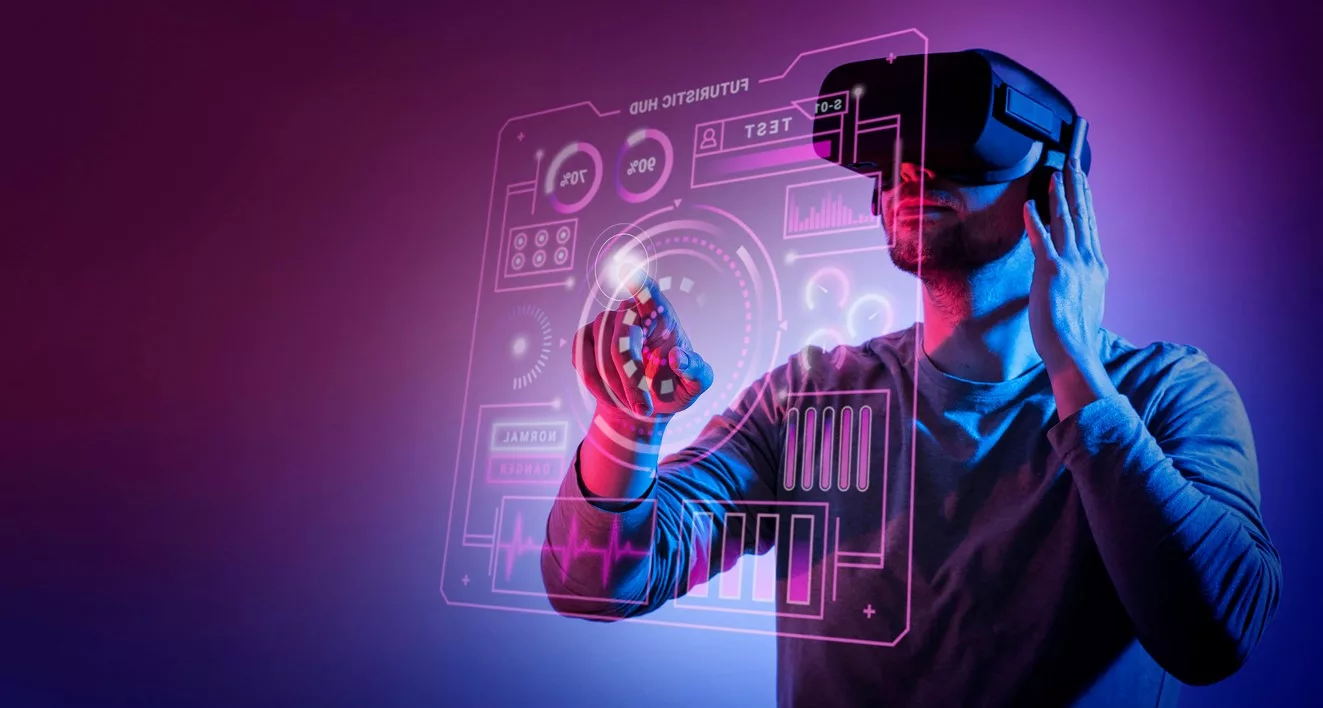Generative AI is revolutionizing how we understand and apply technology in the workplace. This advancement is not just about automation or efficiency; it’s about AI’s innovative ability to create new and unique content. From marketing materials to product development, generative AI promises to boost innovation, productivity, and outcomes while freeing humans for tasks requiring critical thinking, creativity, and emotional intelligence.
The challenges and opportunities are considerable for leaders worldwide. Managers must understand the vast possibilities and associated risks of generative AI and prepare for the organizational transformation that will accompany its adoption. The key to this technology’s success lies in a renewed focus on the human element, understanding how generative AI can serve as a tool to enhance human capabilities. By embracing this technology with a balanced approach, organizations can unlock extraordinary potential benefiting individuals, businesses, and society.
Gen AI Impact and Opportunities
Generative Artificial Intelligence refers to AI systems capable of creating new and original content, from text, images, music, or even programming codes, based on large volumes of existing data. This technology enables functionalities like writing texts, converting text to images, designing websites, creating marketing content, and more. Generative AI, by applying techniques such as Machine Learning, not only automates tasks but also learns and adapts, generating solutions for problems. The impact of generative AI is vast, promoting significant advances in various sectors and creating unique opportunities for increased efficiency and innovation in organizations.

Automation and the STEM Surge
The rise of generative AI is leading to a growing demand for skills in automation and STEM (science, technology, engineering, and mathematics). As technology evolves, there’s an increased need for professionals who can develop, implement, and manage AI systems through an interdisciplinary approach, encouraging problem-solving, critical thinking, and creativity. This creates opportunities for STEM education, preparing the next generation of workers for careers at the forefront of technological innovation.
Furthermore, generative AI enables new forms of research and development in STEM fields, accelerating innovation and allowing for previously impossible findings. AI is transforming how problems are solved, opening new fields of study and application.
Creatives and Managers
Incorporating Generative Artificial Intelligence (AI) in work environments revolutionizes traditional dynamics. Generative AI, with its learning, adaptation, and innovative content production capabilities, offers opportunities to automate repetitive and low-added-value tasks, freeing professionals to focus on activities requiring critical thinking, creativity, and strategic decision-making. It values creative and management roles, as these areas depend on human intuition, empathy, and the ability to navigate more significant complexities and nuances that AI cannot yet fully replicate.
However, this transition also implies the need for continuous professional upskilling. Workers must be willing to adapt, learn to coexist with machines, and use new technologies to their advantage. Companies and educational institutions play a crucial role in this process and must offer training and updates to prepare professionals for the challenges and opportunities presented by generative AI.
Emerging Job Roles
As generative AI evolves and becomes increasingly comprehensive, new roles and demands for specific skills emerge. These emerging roles reflect the need for supervision, direction, ethics, and personalization in the use of AI.
- Engineers and Data and Machine Learning Scientists: The complexity of generative AI models requires highly skilled professionals to develop and optimize these systems. Engineers and scientists specialized in generative AI are at the forefront of creating and implementing these technologies, working to improve their efficiency, generative capacity, and applicability in various contexts.
- AI Ethics Specialists: Ensuring its responsible and ethical use becomes critical as AI becomes ubiquitous. AI ethics specialists are emerging to develop guidelines and norms that ensure integrity, privacy, and fairness in its application. These specialists work to identify and mitigate algorithmic bias, ensure the transparency of AI systems, and promote responsible practices.
- AI Innovation Consultants: The demand for consultants and trainers specialized in AI is growing as companies of all sizes seek to integrate generative AI into their operations. These professionals help organizations identify AI application opportunities, develop implementation strategies, and optimize existing processes.
These are just a few examples of new emerging roles in the field of generative AI. As this area grows, many new jobs will likely arise, helping organizations safely and ethically maximize generative AI benefits.
What is Generative AI’s impact on humans?
Generative AI can amplify human abilities, offering a vast array of tools that enhance productivity and quality and enable the exploration of new ideas and concepts. The transformation caused by generative AI in organizations and society can be compared to the revolution initiated by the surge of computers, which did not come to replace humans but to expand their capabilities.
The impact on the workplace is one of the most discussed aspects of generative AI. While automation may lead to job reductions in certain areas, particularly those involving repetitive and procedural tasks, it also creates employment opportunities and demand for new skills. The ability to work alongside AI and understand and manage these technologies becomes an increasingly valuable skill.
The impact of generative AI on humans is complex and spans various domains. As technology advances, its development and implementation must come with careful reflection on its implications, ensuring that benefits are maximized while risks are minimized. Collaboration among engineers, policymakers, educators, and society at large is essential to navigate the future that generative AI is helping to shape.
Navigating Challenges in the AI Era
Navigating the challenges in the era of artificial intelligence (AI) requires a multifaceted approach focused on ethical and practical issues and operational management. As AI integrates into various aspects of life and work, organizations and individuals must adopt conscious and responsible strategies.
Ethical Considerations and Best Practices
Responsible AI use begins with a deep understanding of its ethical implications. Good practices in this domain are essential for building trust among users and ensuring that AI is used in a way that benefits society as a whole. This includes the following points:
- Transparency: Transparency is crucial for demystifying AI processes and ensuring its decisions can be understood and questioned. This means that algorithms and the data feeding them should be accessible, as far as possible, allowing external evaluations of the systems’ fairness and accuracy.
- Bias Mitigation: Algorithmic bias is a significant concern with the potential to perpetuate and amplify existing inequalities. Organizations must be committed to identifying and correcting biases in datasets and AI models through diversifying data and including varied perspectives when developing and reviewing systems.
- Privacy Protection: Protecting data privacy is another essential pillar in the AI era. Organizations must implement rigorous data management practices, ensuring that personal information collection, storage, and processing are carried out securely and in compliance with existing regulations.
In the context of best practices, companies must develop an effective AI governance model to manage the complex challenges and ethical issues related to these technologies. An AI governance model involves establishing a structured set of guidelines and standards that guide the entire lifecycle of AI technologies — from conception and development to implementation and monitoring. This ensures that AI tools and systems are developed and used safely, ethically, and aligned with organizational values and social norms.
Strategically Integrating Generative AI
The strategic integration of Generative Artificial Intelligence (AI) in organizations represents a powerful lever for transformation and growth. This process redefines operational and business models and drives the need to develop worker’s new skills and adaptability. Artificial Intelligence can accelerate digital transformation and create a more dynamic and resilient work environment.
Organizational Transformation
Integrating generative AI into business operations triggers changes that can profoundly transform organizations. Generative AI enables automating and optimizing various processes, from customer service management to product development. The ability to autonomously generate content and solutions frees human resources for higher-value tasks such as problem-solving and optimization, strengthening a continuous improvement culture.
The challenge is ensuring AI is integrated into the organization’s strategy to achieve strategic objectives and not as an isolated initiative without impacting the vision for the business’s future. By identifying which tasks can be automated or improved and what new tasks may arise, managers and leaders can develop strategies to maximize Generative AI’s benefits and define the needed retraining for workers. It is necessary to involve the entire organization in this change in a streamlined and structured manner. Success in this journey requires a commitment from leaders and an organized approach, ensuring that technology serves business objectives, ethical principles, and social responsibility.
Skills Development and Adaptability
The evolution brought by generative AI requires a renewed focus on skills development and workers’ adaptability. Organizations must invest in training and continuous improvement to prepare their teams for the new challenges and opportunities arising from this technology.
Continuous training is essential to keep the workforce abreast of new technologies and working methods. Training programs should be designed to cover AI technical skills and cross-functional capabilities such as critical thinking and creativity.
Successful adoption of generative AI also depends on building an organizational culture that values experimentation, improvement, and innovation. Quickly adapting to changes is key to cultivating an environment that fully leverages AI’s potential.
Strategically integrating generative AI presents an opportunity for organizations to reinvent themselves. By embracing organizational transformation and investing in skills development and adaptability, companies can position themselves to take advantage of this technology’s competitive edge.
Still have questions about Generative AI?
What new job opportunities does Generative AI create?
Generative AI creates opportunities in fields such as AI ethics, AI development and programming, user experience design for AI-based interfaces, and data analysis to optimize AI outputs.
What jobs will be lost to Generative AI?
Jobs focused on repetitive and procedural tasks, such as administrative functions, data entry, and some areas of basic content writing, are more subject to automation by Generative AI.
What is generative AI?
Generative AI refers to artificial intelligence systems capable of creating new and original content, such as text, images, music, and code, from existing data, learning from large datasets, and generating outputs that were not explicitly programmed.
See more on Digital & AI
Find out more about improving your organization
